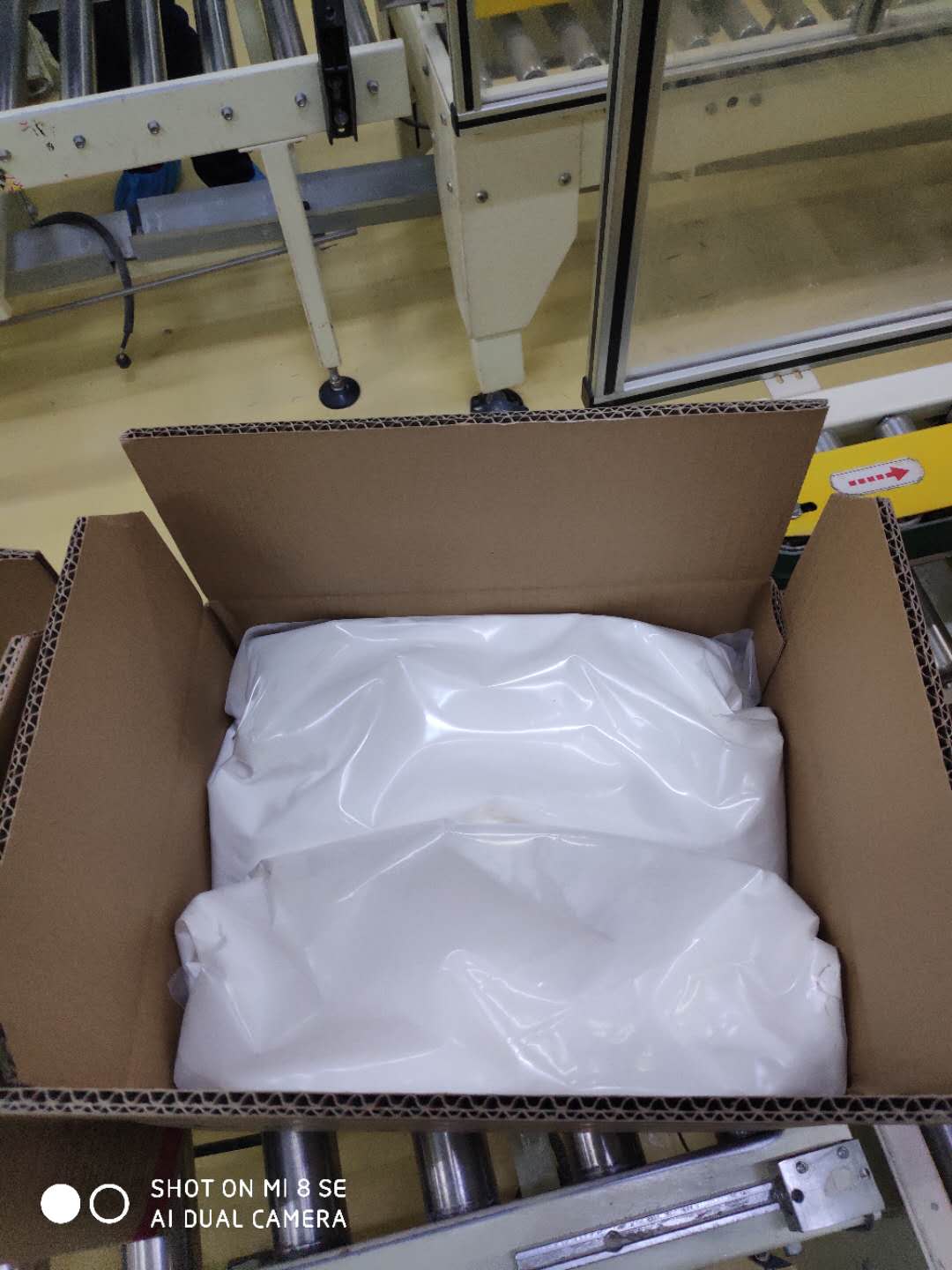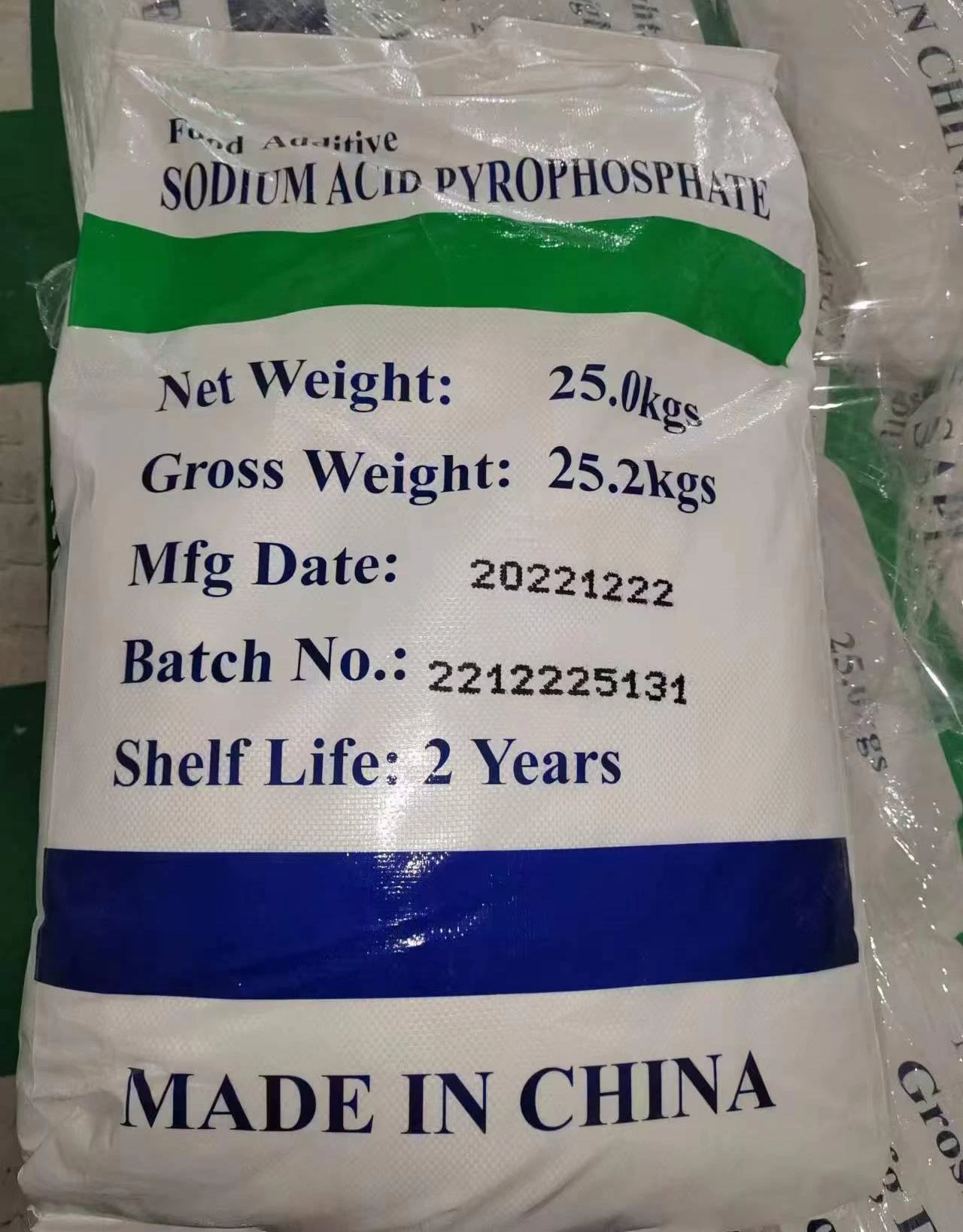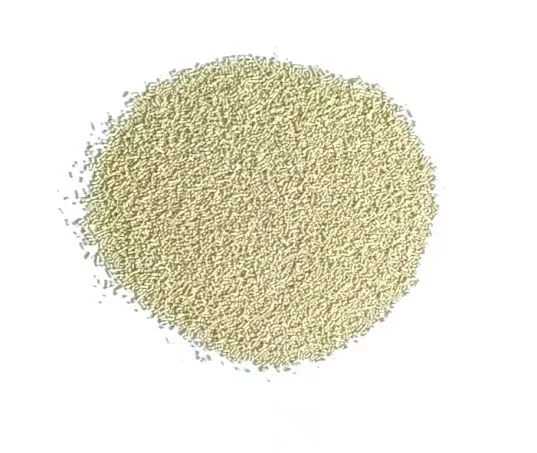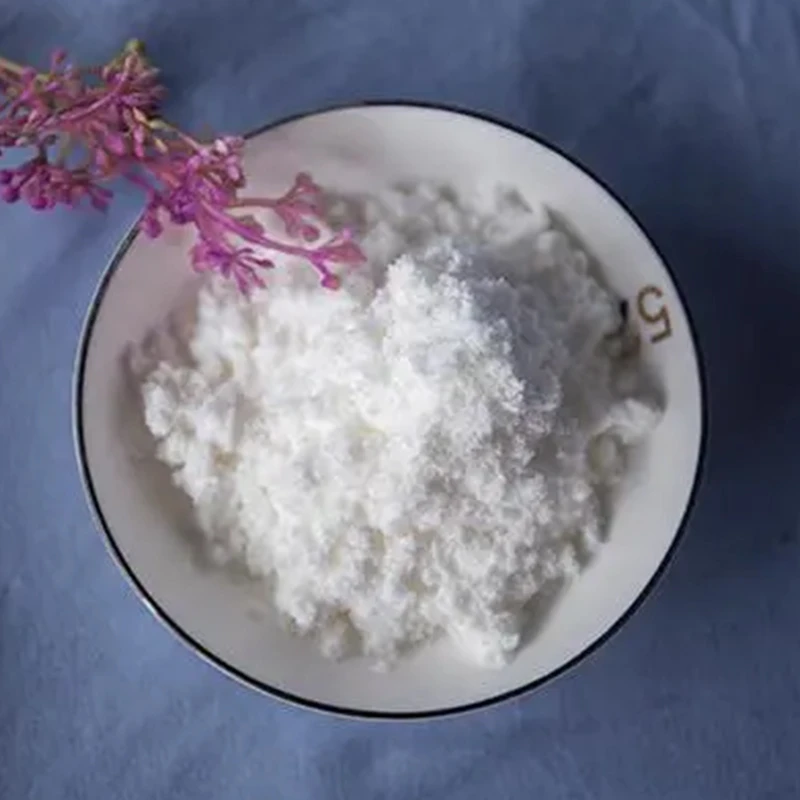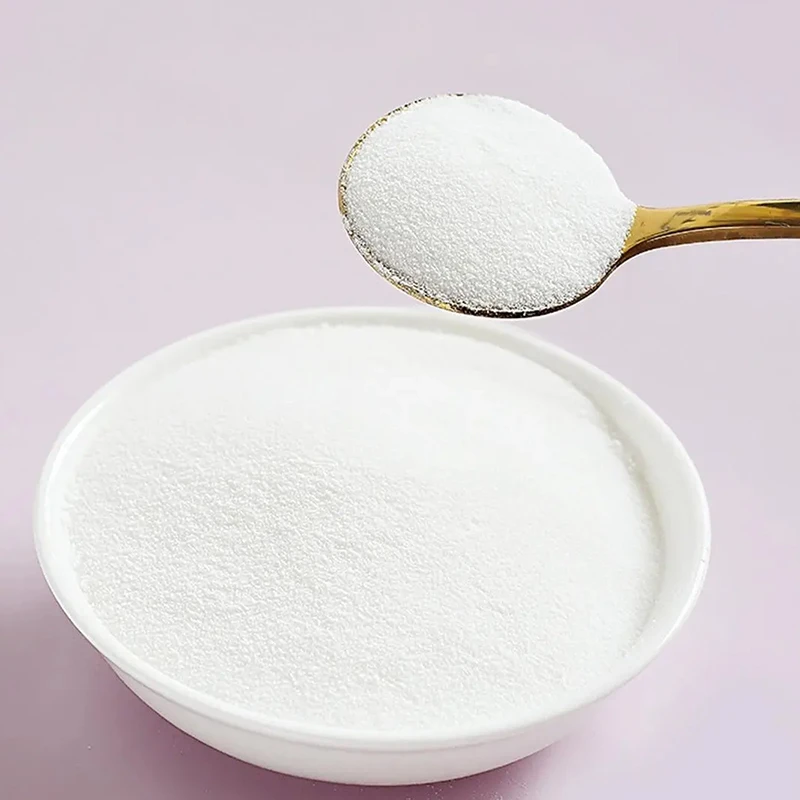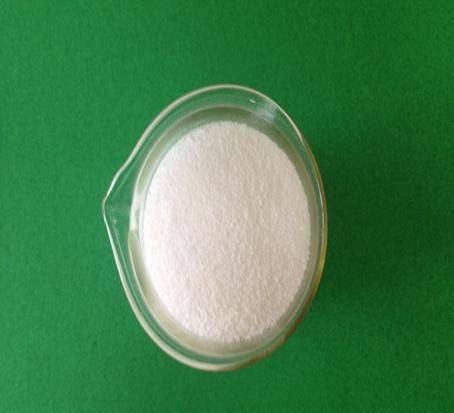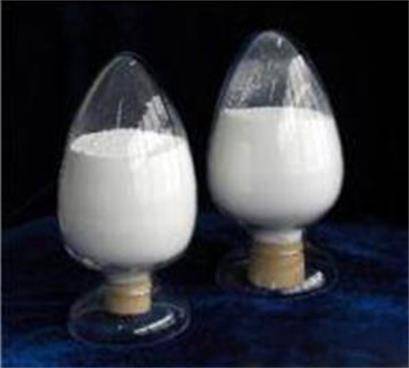Demystifying Sodium Benzoate: A Chemical Perspective vs. Baking Soda
In the realm of food preservation and industrial chemistry, clarity regarding chemical compounds is paramount. A common misconception, often encountered in general discourse, is the notion that sodium benzoate is baking soda. This understanding, while perhaps stemming from a loose association with common household ingredients, is fundamentally inaccurate and can lead to significant misunderstandings, particularly within B2B contexts where precision is critical for product development, regulatory compliance, and consumer safety. Sodium benzoate (C7H5NaO2) is the sodium salt of benzoic acid, a well-established food additive recognized globally under the E number E211. Its primary function is as a highly effective antimicrobial preservative, especially active in acidic environments, where it inhibits the growth of bacteria, yeasts, and molds, thereby extending the shelf life of a wide array of products. The mechanism involves the conversion of sodium benzoate to benzoic acid in acidic conditions, which then enters microbial cells and disrupts their internal pH and metabolic processes, preventing spoilage. In contrast, baking soda, chemically known as sodium bicarbonate (NaHCO3), is an entirely different compound. Its primary uses are as a leavening agent in baking, reacting with acids to produce carbon dioxide and creating a rise in baked goods, and as a mild alkali for cleaning or antacid purposes. While both compounds contain sodium, their chemical structures, molecular weights, physical properties, and, critically, their functional applications are distinct. Sodium benzoate is a meticulously engineered preservative, critical for maintaining the safety and quality of processed foods, beverages, pharmaceuticals, and cosmetics, where precise application rates and purity levels are paramount. The Food Grade Sodium Benzoate White Granules we provide, for instance, are manufactured to rigorous specifications, ensuring high purity, consistent granular size, and optimal solubility, making them ideal for large-scale industrial applications where uniform dispersion and efficacy are non-negotiable. Understanding this fundamental distinction between sodium benzoate is baking soda is the first step in appreciating the sophisticated role sodium benzoate plays in modern industry, a role predicated on its specific chemical properties and proven preservative capabilities rather than any incidental similarities in elemental composition. The precision required in its application, from ensuring the correct pH environment for maximum efficacy to adhering to strict regulatory limits, underscores the need for expert knowledge and high-quality materials, distinguishing it sharply from the more broadly applicable, and chemically simpler, sodium bicarbonate. This clarity is indispensable for formulators, quality assurance professionals, and procurement specialists navigating the complexities of ingredient sourcing and product development in the food and chemical sectors globally.
The Sophisticated Synthesis of Food Grade Sodium Benzoate White Granules
The production of Food Grade Sodium Benzoate White Granules is a highly controlled and sophisticated chemical engineering process, far removed from the simple mixing of household ingredients that the phrase sodium benzoate is baking soda might misleadingly imply. The manufacturing journey begins with high-purity benzoic acid, typically derived from the oxidation of toluene, which serves as the primary raw material. This benzoic acid then undergoes a neutralization reaction with sodium hydroxide (caustic soda), a strong base, in a carefully controlled aqueous environment. The reaction, represented as C6H5COOH + NaOH → C6H5COONa + H2O, is exothermic and requires precise temperature and pH management to ensure complete conversion and minimize by-product formation. Following this initial synthesis, the resulting sodium benzoate solution is subjected to a series of rigorous purification steps. This multi-stage purification process is critical for achieving the high purity levels required for food-grade applications, ensuring the absence of impurities such as heavy metals, unreacted raw materials, and organic contaminants that could compromise product safety or efficacy. These steps typically include filtration, which removes any insoluble particles, followed by activated carbon treatment to adsorb and remove trace organic impurities and colorants. Crystallization is then induced by carefully adjusting temperature and concentration, allowing the pure sodium benzoate to precipitate out of the solution. The crystals are then separated from the mother liquor through centrifugation. This is a vital stage where the morphology and purity of the crystals are established. After separation, the crystals undergo a meticulous drying process, often utilizing fluid bed dryers or rotary vacuum dryers, to achieve the optimal moisture content, typically less than 1.5%. Excessive moisture can lead to caking and degradation, while insufficient drying can impact product stability. The final critical step for our Food Grade Sodium Benzoate White Granules is the granulation process. Unlike fine powders, granules offer significant advantages in industrial handling, including reduced dust formation, improved flowability, less caking, and better dissolution rates, which are crucial for consistent dosing in large-scale food and beverage production. Granulation techniques such as compaction or spray drying are employed to achieve uniform particle size distribution and enhance physical characteristics. Throughout the entire manufacturing process, stringent quality control measures are implemented at every stage. This includes in-process checks using analytical techniques like High-Performance Liquid Chromatography (HPLC) for assaying purity, Gas Chromatography-Mass Spectrometry (GC-MS) for detecting trace organic impurities, and Inductively Coupled Plasma-Optical Emission Spectrometry (ICP-OES) for heavy metal analysis. Conformance to international standards such as ISO 22000 for food safety management, FSSC 22000, and adherence to specific regulatory requirements like the Food Chemicals Codex (FCC) and relevant FDA guidelines are non-negotiable. Our dedication as a leading sodium benzoate powder manufacturer ensures that every batch meets or exceeds these stringent global benchmarks, providing our clients with a product of unparalleled quality and consistency. The entire process is conducted in a controlled environment, often with classified cleanrooms, to prevent contamination and maintain the integrity of the food-grade product, distinguishing it from lower-grade industrial chemicals and emphatically underscoring that the production of sodium benzoate is a complex chemical synthesis, not akin to the simple production or handling of sodium benzoate is baking soda. This comprehensive approach, from raw material sourcing to final granulation and packaging, underscores our commitment to delivering superior products to the global market, ensuring that every granule contributes effectively to the preservation and safety of our clients' end products.
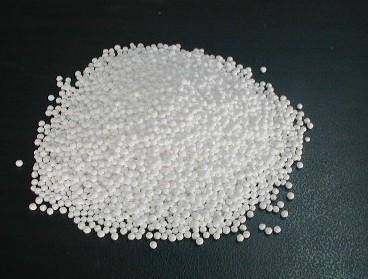
Technical Specifications and Performance Parameters of Food Grade Sodium Benzoate
For B2B buyers, understanding the precise technical specifications and performance parameters of Food Grade Sodium Benzoate White Granules is paramount to ensuring product efficacy, regulatory compliance, and operational efficiency. The quality of sodium benzoate powder, regardless of whether it's in powder or granular form, is defined by a set of critical parameters that directly impact its functionality as a preservative. Our Food Grade Sodium Benzoate White Granules adhere to, and often exceed, the stringent specifications laid out by international pharmacopoeias such as USP (United States Pharmacopeia), BP (British Pharmacopoeia), EP (European Pharmacopoeia), and food chemical standards like the Food Chemicals Codex (FCC), as well as being fully compliant with EU and FDA regulations. Key parameters include the Assay (Purity), which typically ranges from 99.0% to 100.5% on a dry basis, indicating the concentration of active sodium benzoate. A higher assay ensures that a lower quantity of the product is needed to achieve the desired preservative effect, leading to cost efficiencies and minimal impact on the product's sensory profile. Moisture content, typically maintained below 1.5%, is crucial for product stability, preventing caking during storage and ensuring optimal flowability during processing, which is especially important for our granular product form. The pH of a 10% solution, usually between 7.5 and 8.5, is another critical indicator, reflecting the compound's stability and ensuring it does not adversely affect the pH balance of the final product, while also confirming its neutral nature before dissolution in acidic matrices. Chloride content, sulfur compounds, and heavy metals (lead, arsenic, mercury, etc.) are meticulously controlled and kept well below permissible limits (e.g., Lead sodium benzoate powder, which significantly enhances safety and handling in industrial settings. This consistency ensures uniform dispersion in formulations, leading to predictable and reliable preservative action. Solubility in water is excellent, a property vital for ease of integration into aqueous solutions commonly found in beverages, sauces, and pharmaceutical syrups. The preservative efficacy is intrinsically linked to these specifications; a high-purity product with precise granulation will consistently deliver the intended antimicrobial action against a broad spectrum of spoilage microorganisms, including yeasts, molds, and bacteria like E. coli and Salmonella, particularly in environments with a pH below 4.5. This pH dependency is a critical aspect of its application, ensuring its optimal performance where most other preservatives might fail. The stability and shelf life of the product itself, typically 24 months when stored in original unopened container111s under cool, dry conditions, are also direct outcomes of these tightly controlled technical parameters, guaranteeing long-term usability for our clients. These detailed technical parameters differentiate professional-grade sodium benzoate from any hypothetical scenario where sodium benzoate is baking soda, emphasizing its specialized chemical profile and highly regulated quality standards essential for its critical role in extending product viability and safety across diverse industries.
| Parameter | Specification (Typical) | Method of Analysis | Significance for Application |
|---|---|---|---|
| Assay (C7H5NaO2) | 99.0% - 100.5% (dry basis) | HPLC / Titration (USP/FCC) | Ensures maximum active ingredient concentration for effective preservation; impacts dosage and cost-efficiency. |
| Appearance | White Granules | Visual Inspection | Indicates proper processing and granulation, confirming superior handling characteristics over powder form. |
| Moisture Content | ≤ 1.5% | Karl Fischer Method | Prevents caking, maintains flowability, and ensures product stability during storage and use. |
| pH of 10% Solution | 7.5 - 8.5 | pH Meter | Confirms product neutrality before dissolution; important for final product pH stability and optimal preservative action in acidic foods. |
| Heavy Metals (as Pb) | ≤ 2 ppm | ICP-OES / AAS | Crucial for food safety and regulatory compliance, ensuring product is free from harmful contaminants. |
| Arsenic | ≤ 3 ppm | ICP-OES / AAS | Ensures compliance with strict global food additive safety standards. |
| Chlorides | ≤ 0.03% | Titrimetric Method | Indicates low levels of residual salts, contributing to overall purity and taste neutrality. |
| Sulfur Compounds | Passes test | Specific chemical test | Prevents undesirable odors or reactions in the final product. |
| Volatile Organic Impurities | Meets requirements | GC-MS | Ensures freedom from residual solvents or other volatile contaminants impacting product integrity and safety. |
Diverse Applications and Industry Trends of Sodium Benzoate
The versatility of sodium benzoate, specifically our high-quality Food Grade Sodium Benzoate White Granules, makes it an indispensable component across numerous industries, primarily driven by its potent antimicrobial properties. Far from the simplistic function often implied by the phrase sodium benzoate is baking soda, its applications are intricate and critical to modern product stability. The most prominent area of application is the food and beverage industry, where it is extensively used as a preservative in acidic foods and drinks. This includes soft drinks, fruit juices, jams, jellies, salad dressings, sauces, pickles, and acidic dairy products. Its efficacy is pH-dependent, meaning it performs optimally in products with a pH below 4.5, where benzoic acid, the active form, predominates. In beverages, it effectively inhibits the growth of yeasts and molds that can cause spoilage, ensuring product safety and extended shelf life. For instance, in carbonated soft drinks, sodium benzoate prevents fermentation, maintaining desired flavor profiles and visual clarity over time. In sauces and dressings, it guards against microbial degradation that could lead to off-flavors, discoloration, or even pathogenic risks. The pharmaceutical industry also heavily relies on sodium benzoate powder uses for preserving liquid medications such as syrups, elixirs, and suspensions, protecting them from microbial contamination and ensuring their stability throughout their shelf life. Its inclusion is vital for multi-dose preparations that are frequently opened, preventing the introduction and proliferation of microorganisms. Beyond ingestible products, sodium benzoate finds significant use in the cosmetics and personal care sector. It is incorporated into creams, lotions, shampoos, and liquid soaps to prevent the growth of bacteria and fungi, thereby maintaining product integrity, preventing spoilage, and ensuring consumer safety. The presence of the product’s specific granular form also minimizes dust during manufacturing of these products, a key advantage for worker safety and product consistency. Additionally, the industrial sector leverages sodium benzoate in various specialized applications, including as a corrosion inhibitor in automotive antifreeze products, a preservative in some paints and adhesives, and a raw material in the production of certain dyes and plastics. The current industry trends for preservatives like sodium benzoate are multifaceted. There's a persistent, growing global demand for packaged and convenience foods, particularly in emerging economies, which directly fuels the need for effective preservatives to ensure extended shelf life and reduce food waste. Urbanization, busy lifestyles, and the expansion of supermarket chains necessitate products that can withstand longer distribution chains and storage periods. Conversely, there is a strong consumer trend towards "clean label" products, which encourages manufacturers to explore natural alternatives or minimize the use of perceived artificial additives. However, the proven efficacy, cost-effectiveness, and established safety profile of sodium benzoate, backed by decades of research and regulatory approval by bodies like the FDA and EFSA (European Food Safety Authority) as Generally Recognized As Safe (GRAS) at specified levels, ensure its continued prominence. Future trends may see increased research into synergistic combinations of preservatives to achieve efficacy with lower individual concentrations, or continued optimization of formulations to balance shelf life with consumer preferences. Despite the occasional misinformation, understanding the genuine sodium benzoate powder uses underscores its irreplaceable role in ensuring product safety and longevity across a vast array of consumer and industrial goods, solidifying its position as a cornerstone of modern preservation technology.
Competitive Landscape and Strategic Sourcing: Choosing Your Sodium Benzoate Partner
Navigating the competitive landscape of the chemical supply chain, especially for critical ingredients like Food Grade Sodium Benzoate, requires a strategic approach to sourcing. When evaluating a sodium benzoate powder supplier, it’s imperative to look beyond just the sodium benzoate powder price and delve deeply into capabilities that ensure consistent quality, reliability, and technical support. Our position as a leading sodium benzoate powder manufacturer is built on a foundation of operational excellence, robust quality management systems, and a deep understanding of market demands. The primary criteria for selecting a reputable supplier should include stringent quality control and comprehensive certifications. A manufacturer's adherence to international standards such as ISO 9001 (Quality Management Systems), ISO 22000 (Food Safety Management Systems), FSSC 22000, and product-specific certifications like Kosher and Halal, alongside compliance with major pharmacopoeias (USP, BP, EP) and food chemical codes (FCC), are non-negotiable. These certifications provide independent verification of manufacturing consistency, traceability, and product purity, ensuring that the supplied sodium benzoate meets the highest global safety and quality benchmarks for food, pharma, and cosmetic applications. Reliability of the supply chain is another critical factor. A truly global sodium benzoate powder supplier must demonstrate robust logistics capabilities, ensuring timely delivery regardless of geographical location or geopolitical challenges. This involves sophisticated inventory management, diversified shipping routes, and strong relationships with freight forwarders to mitigate supply disruptions. For B2B clients, consistent supply is paramount to maintaining production schedules and preventing costly downtime. Furthermore, a manufacturer’s research and development (R&D) capabilities signify a commitment to innovation and continuous improvement. This includes optimizing existing production processes for greater efficiency and sustainability, exploring new product forms (like our precisely engineered granules which offer superior handling over traditional powder), and developing solutions for emerging industry needs. Technical support and after-sales service are equally vital. A trusted partner offers more than just a product; they provide expert guidance on application, storage, regulatory compliance, and troubleshooting. This support can be invaluable, especially when integrating sodium benzoate into complex formulations or navigating evolving regulatory landscapes. While the sodium benzoate powder price is certainly a consideration, a lower initial cost can quickly be offset by issues related to inconsistent quality, supply chain interruptions, or a lack of technical support, leading to higher overall costs, product recalls, or reputational damage. Our company distinguishes itself by offering a transparent pricing structure that reflects our unwavering commitment to quality, backed by a comprehensive suite of services that ensure maximum value for our clients. We invite prospective partners to compare our offerings not just on price, but on the holistic value proposition that includes superior product quality, assured supply, and expert technical assistance, confirming that our products are entirely distinct from any simple comparison like sodium benzoate is baking soda. Our long-standing relationships with global partners and our extensive service history are testaments to our reliability and dedication to client success, solidifying our position as the preferred choice for discerning buyers worldwide.
| Feature/Criterion | Our Company (Leading Manufacturer) | Competitor A (Established Global) | Competitor B (Regional Niche) |
|---|---|---|---|
| Product Purity (Assay) | Guaranteed 99.5% - 100.5% (Exceeds FCC/USP) | Typically 99.0% - 100.0% (Meets FCC/USP) | Variable, sometimes 98.5% - 99.5% |
| Product Form Offered | Food Grade White Granules (Superior Flow) & Powder | Mainly Powder, limited granular options | Only Powder or Flakes |
| Certifications & Compliance | ISO 9001, ISO 22000, FSSC 22000, HACCP, GMP, Kosher, Halal, FDA, FCC, EU Reg. Compliant | ISO 9001, HACCP, FDA, FCC | Basic ISO 9001, some regional compliance |
| Supply Chain Reliability | Global distribution network, multiple production sites, robust contingency planning | Extensive, but sometimes faces regional bottlenecks | Limited to specific regions, less resilient to global shocks |
| Technical Support & R&D | Dedicated R&D team, application specialists, customized formulation assistance | Standard technical data sheets, limited customization | Basic product information only |
| Customer Service Responsiveness | 24/7 Global support, dedicated account managers, rapid response | Standard business hours, tiered support | Email support, slower response times |
| Pricing Model | Competitive, transparent, value-driven; long-term contract discounts | Market-rate, less flexibility on volume discounts | Often lowest spot price, but inconsistent |
Tailored Solutions and Exemplary Case Studies
Recognizing that every B2B client has unique requirements, our approach goes beyond simply supplying Food Grade Sodium Benzoate White Granules. We excel in developing tailored solutions that precisely match specific application needs, ensuring optimal performance and cost-effectiveness. This customized service is a testament to our expertise as a leading sodium benzoate powder manufacturer, distinguishing us from less adaptable suppliers. For instance, while our standard granules offer superior handling and dissolution characteristics compared to fine sodium benzoate powder, certain specialized applications might benefit from a specific particle size distribution or a slightly different moisture profile. Our technical team works closely with clients to understand their manufacturing processes, product formulations, and desired end-product characteristics. This collaborative approach allows us to fine-tune our product specifications, whether it involves adjusting particle uniformity for automated dosing systems in large-scale beverage plants or providing specialized packaging to meet unique storage or transportation requirements in pharmaceutical compounding. We offer various packaging options, from large bulk bags (e.g., 1000 kg super sacks) for high-volume industrial users to smaller, more manageable drums (e.g., 25 kg fiber drums) for specific batch sizes or pilot productions, all designed to preserve product integrity and facilitate efficient handling. Furthermore, our technical expertise extends to providing formulation guidance, advising on optimal pH ranges for sodium benzoate efficacy, synergistic effects with other preservatives, or troubleshooting common issues related to solubility or stability. This level of customization ensures that our clients receive a product that is not just compliant with standards, but perfectly integrated into their operational workflow, leading to enhanced efficiency and superior end-product quality.
To illustrate the tangible benefits of our tailored solutions, consider the following exemplary (hypothetical yet realistic) case studies, demonstrating our commitment to solving complex industrial challenges, far from any oversimplification such as "sodium benzoate is baking soda":
Case Study 1: Extended Shelf Life for a Global Beverage Brand
A major international beverage company faced challenges with inconsistent shelf life in their range of fruit-flavored soft drinks, particularly during extended transit and storage in varying climate conditions. Their existing sodium benzoate supplier provided standard powder, which sometimes led to issues with dissolution and localized microbial spoilage in certain batches. Upon engaging with our technical team, we analyzed their specific formulation, production process, and distribution network. We identified that the variable dissolution rate of their current powder led to suboptimal dispersion of the preservative. Our proposed solution involved transitioning to our Food Grade Sodium Benzoate White Granules, customized for a tighter particle size distribution and enhanced solubility. We provided detailed application guidelines on optimal mixing times and temperature for their high-speed bottling lines. The result was a remarkable 25% increase in consistent shelf life across their product line, reduction in spoilage rates by 15%, and significant improvement in overall product stability, especially in challenging environments. The granular form also led to a 10% reduction in dust, improving worker safety and plant cleanliness. This strategic shift not only protected their brand reputation but also resulted in substantial cost savings from reduced product returns and improved supply chain efficiency.
Case Study 2: Enhanced Stability for a Pharmaceutical Suspension
A pharmaceutical manufacturer developing a new oral suspension for pediatric use encountered stability issues related to microbial growth post-opening. Their initial trials with a different preservative yielded unsatisfactory results, and they were hesitant about traditional sodium benzoate powder uses due to concerns about taste impact and consistency. Our specialists provided in-depth consultation, including evaluating the suspension's complex matrix and target pH. We recommended a specific concentration of our Food Grade Sodium Benzoate White Granules, focusing on its high purity and controlled pH impact. We also offered a customized small-batch packaging solution to facilitate their pilot production, ensuring strict quality control from the outset. The outcome was a successfully formulated suspension that met stringent microbial limits throughout its prescribed shelf life, even after multiple openings by consumers. Furthermore, the granular form ensured consistent dispersion without affecting the delicate flavor profile designed for pediatric patients. This partnership enabled the pharmaceutical company to bring a safe, stable, and palatable product to market efficiently, underscoring the critical role of a reliable and flexible sodium benzoate powder supplier.
Case Study 3: Optimizing Production for a Savory Sauce Manufacturer
A large-scale producer of savory sauces and condiments sought to optimize their production process, particularly the handling of preservatives. Their existing fine sodium benzoate powder created significant dust, posing occupational hazards and requiring extensive cleaning protocols. They also experienced occasional batch inconsistencies due to poor flowability and caking. After a comprehensive site visit and process analysis, we recommended implementing our Food Grade Sodium Benzoate White Granules, emphasizing their superior flow properties and significantly reduced dust profile. We provided specific equipment recommendations for automated dosing systems tailored to the granules. The transition led to an immediate 20% improvement in processing efficiency due to faster ingredient addition and consistent dosing. More importantly, the reduction in airborne dust improved workplace safety and significantly cut down on cleaning time and costs. This case demonstrates how a seemingly minor change in product form, supported by expert guidance, can yield substantial operational and safety benefits, far outweighing a focus solely on sodium benzoate powder price. These case studies exemplify our commitment to building long-term partnerships by delivering not just high-quality products, but comprehensive solutions that address our clients' unique operational and commercial objectives.
Ensuring Trust: Quality Assurance, Logistics, and Customer Support
Trust is the bedrock of any successful B2B relationship, particularly in the supply of critical ingredients like Food Grade Sodium Benzoate. Our commitment to trustworthiness is woven into every aspect of our operations, from the stringent quality assurance protocols governing the production of our Food Grade Sodium Benzoate White Granules to our robust logistics and responsive customer support systems. Beyond the in-process quality controls detailed earlier, our post-production quality assurance is equally rigorous. Every batch of sodium benzoate undergoes final comprehensive testing to confirm adherence to all specified parameters, including purity, moisture, heavy metals, and physical characteristics. Each shipment is accompanied by a Certificate of Analysis (CoA) providing full traceability to the raw materials and manufacturing records. This batch traceability is critical for regulatory compliance and recall readiness, offering our clients complete peace of mind. Our state-of-the-art laboratories are equipped with the latest analytical instrumentation, and our quality control personnel are highly trained experts, ensuring precision and reliability in all testing. This meticulous approach ensures that the product delivered is consistently of the highest food-grade quality, unequivocally dispelling any lingering, inaccurate associations with simpler substances like sodium benzoate is baking soda.
Understanding the critical timelines of our B2B clients, our delivery cycle is designed for efficiency and reliability. From the moment an order for sodium benzoate powder is placed, it enters a streamlined process managed by a dedicated logistics team. Order processing is expedited through advanced ERP systems, ensuring accurate inventory allocation and documentation. We maintain strategically located warehousing facilities to facilitate rapid dispatch. For global shipments, we partner with reputable international freight forwarders that specialize in chemical logistics, ensuring secure and timely delivery to virtually any location worldwide, whether by sea, air, or land. We provide clear communication regarding estimated delivery times and proactive updates on shipment status, allowing our clients to plan their production schedules with confidence. Our robust supply chain management system is designed to minimize risks associated with global transport, including customs clearance and adherence to international shipping regulations for chemical products. This proactive approach to logistics ensures that clients receive their Food Grade Sodium Benzoate White Granules precisely when and where they need them, minimizing production delays and optimizing their inventory management.
Our commitment to our clients extends far beyond the point of sale, encompassing comprehensive warranty and after-sales support. We stand behind the quality of our Food Grade Sodium Benzoate White Granules with a clear quality guarantee, ensuring that our products meet the specified technical parameters for a defined period under proper storage conditions. In the rare event of a product-related issue, our dedicated customer support team is readily available to provide swift assistance. This includes technical assistance from our R&D and application specialists who can help troubleshoot formulation challenges, advise on optimal usage parameters, or provide guidance on regulatory interpretations. We offer comprehensive documentation, including Safety Data Sheets (SDS), technical specifications, and regulatory dossiers, to support our clients' compliance efforts globally. Our customer feedback mechanism is designed to capture client input, which is then channeled back to our production and R&D teams for continuous improvement, ensuring that our products and services evolve with our clients' needs. This holistic approach to customer support reinforces our position as a trusted sodium benzoate powder supplier and partner, dedicated to fostering long-term relationships built on reliability, transparency, and mutual success. It is our firm belief that superior product quality, coupled with unparalleled service and deep technical expertise, collectively contribute to delivering maximum value to our B2B clients, establishing a clear distinction between our specialized chemical products and any misinformed notion that sodium benzoate is baking soda. We aim to be an extension of our clients' innovation and quality assurance teams, providing the foundational ingredients and insights needed for their products to thrive in a competitive market.
Frequently Asked Questions (FAQ)
Addressing common inquiries helps clarify misconceptions and provides essential information for B2B decision-makers and technical personnel. Here are some frequently asked questions about sodium benzoate and our Food Grade Sodium Benzoate White Granules, directly addressing inquiries related to `sodium benzoate is baking soda` and other vital aspects of its use and sourcing.
-
Q: Is sodium benzoate is baking soda? What is the fundamental difference?
A: No, absolutely not. This is a common but significant misunderstanding. Sodium benzoate (C7H5NaO2) is the sodium salt of benzoic acid and is primarily used as a preservative to inhibit the growth of mold, yeast, and bacteria in acidic foods and beverages. Its mechanism involves converting to benzoic acid at low pH, which then enters and disrupts microbial cells. Baking soda, or sodium bicarbonate (NaHCO3), is a different chemical compound entirely. It is a leavening agent used in baking (reacting with acid to produce CO2 gas for rise) and a mild alkaline agent. While both contain sodium, their chemical structures, properties, and applications are fundamentally distinct. Sodium benzoate is a specialized food additive with a specific antimicrobial function, whereas sodium bicarbonate is a leavening agent and general alkali. This distinction is critical for proper product formulation and safety in industrial applications.
-
Q: What are the primary sodium benzoate powder uses in the food industry?
A: Our Food Grade Sodium Benzoate White Granules are extensively used as a preservative in a wide range of acidic food and beverage products. Key applications include carbonated soft drinks, fruit juices, fruit preserves (jams, jellies), salad dressings, pickles, fermented foods, and some acidic dairy products. It is particularly effective against yeasts and molds, and some bacteria, preventing spoilage and extending product shelf life. Its efficacy is pH-dependent, working best in products with a pH below 4.5. The granular form we offer ensures superior dissolution and handling, making it highly efficient for industrial-scale food production processes.
-
Q: What makes your company a reliable sodium benzoate powder supplier and sodium benzoate powder manufacturer?
A: We pride ourselves on stringent quality control, comprehensive certifications (ISO 22000, FSSC 22000, HACCP, GMP, Kosher, Halal, FDA, FCC compliant), and a robust global supply chain. Our manufacturing processes ensure high purity and consistent product specifications. We also offer superior product forms like our Food Grade White Granules, which provide enhanced flowability and reduced dust compared to traditional sodium benzoate powder, optimizing client operations. Our dedicated technical support and customized solutions further enhance our reliability, ensuring we meet diverse client needs beyond standard product delivery. We believe in building long-term partnerships based on trust and consistent performance.
-
Q: How does the sodium benzoate powder price compare to its value proposition?
A: While price is always a consideration, the true value of sodium benzoate extends beyond its per-kilogram cost. Our pricing reflects the consistent high purity, superior granular form, adherence to global safety standards, and the comprehensive technical and logistical support we provide. Investing in high-quality Food Grade Sodium Benzoate ensures reliable preservation, reduces the risk of product spoilage or recalls, and optimizes manufacturing efficiency. A lower-priced alternative might compromise quality, leading to higher overall costs due to product loss, reprocessing, or even brand damage. Our value proposition is centered on delivering reliability, safety, and consistent performance, which ultimately translates to long-term cost savings and enhanced brand integrity for our clients.
-
Q: Is sodium benzoate powder safe for use in food products?
A: Yes, when used within regulatory limits, sodium benzoate is widely considered safe for food products globally. It has been reviewed and approved by major regulatory bodies worldwide, including the U.S. Food and Drug Administration (FDA), which classifies it as Generally Recognized As Safe (GRAS), and the European Food Safety Authority (EFSA). These bodies have established acceptable daily intake (ADI) levels and maximum usage limits for various food categories. Our Food Grade Sodium Benzoate White Granules are manufactured to exceed these safety standards, with rigorous testing for purity and absence of contaminants, ensuring its suitability and safety for its intended food preservation purposes. It's crucial for users to adhere to recommended dosage levels and application guidelines.
Conclusion and Future Outlook
In summation, the journey through the intricate world of Food Grade Sodium Benzoate White Granules reveals a compound of profound chemical sophistication and indispensable industrial utility, a stark contrast to any simplistic or erroneous comparison like sodium benzoate is baking soda. This comprehensive exploration has aimed to underscore the expert knowledge, rigorous processes, and unwavering quality standards that define the production and application of this vital preservative. From its precise chemical synthesis and purification to its critical role in ensuring the safety and extended shelf life of countless food, pharmaceutical, and cosmetic products, sodium benzoate stands as a testament to modern chemical engineering and food science. Our commitment as a leading sodium benzoate powder manufacturer and sodium benzoate powder supplier goes beyond merely delivering a product; it encompasses providing a complete solution that includes technical expertise, reliable logistics, and dedicated customer support. We understand that in the B2B landscape, every ingredient choice impacts product integrity, consumer trust, and bottom-line profitability. Therefore, our focus remains on delivering not just high-purity Food Grade Sodium Benzoate White Granules at a competitive sodium benzoate powder price, but also the assurance of consistent quality, supply chain resilience, and a partnership approach that empowers our clients to achieve their innovation and market goals. The granular form of our product specifically addresses modern industrial needs for improved handling, reduced dust, and enhanced dissolution, representing an evolution from traditional sodium benzoate powder and further enhancing its value proposition.
Looking to the future, as global populations continue to grow and demand for processed, shelf-stable, and safe products escalates, the role of effective preservatives like sodium benzoate will only become more critical. While consumer preferences may drive ongoing research into novel preservation techniques and "clean label" solutions, the proven efficacy, safety profile, and economic viability of sodium benzoate ensure its continued prominence in the market. Innovation will likely focus on optimizing application methods, exploring synergistic blends with other preservatives, and enhancing sustainability in manufacturing processes. Our company remains at the forefront of these developments, continuously investing in R&D and refining our processes to meet evolving industry challenges and regulatory landscapes. We invite B2B decision-makers, product developers, and technical professionals to engage with us to discover how our Food Grade Sodium Benzoate White Granules can be a strategic asset in their formulations, helping them to consistently deliver safe, high-quality products to consumers worldwide. Choosing the right partner for essential ingredients is a decision that impacts the entire product lifecycle, and we are committed to being that reliable, expert partner for our clients, ensuring that every interaction and every delivery reinforces the trust and confidence that define true professional collaboration.
References and Further Reading
- U.S. Food and Drug Administration (FDA) – Food Additives & GRAS Ingredients.
- European Food Safety Authority (EFSA) – Scientific Opinion on the re-evaluation of benzoic acid (E 210), sodium benzoate (E 211), potassium benzoate (E 212) and calcium benzoate (E 213) as food additives.
- ScienceDirect – Sodium Benzoate Overview and Applications.
Post time: Aug - 10 - 2025





